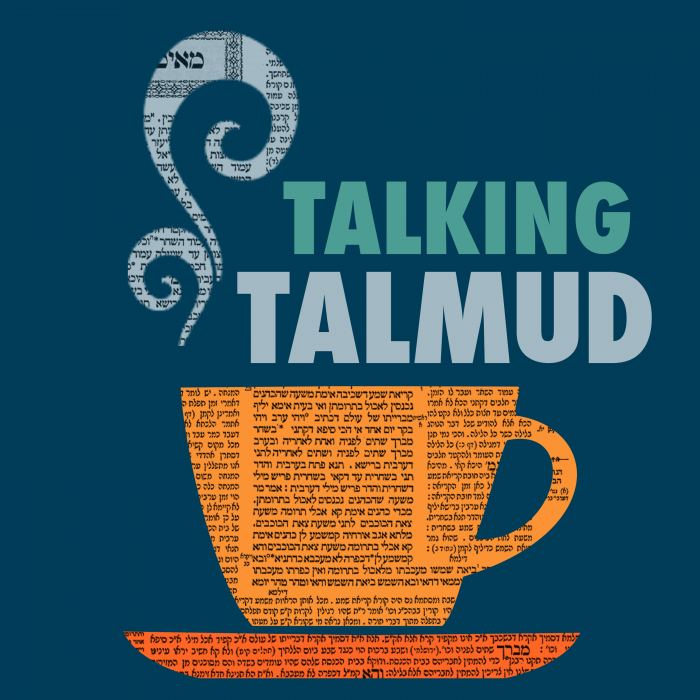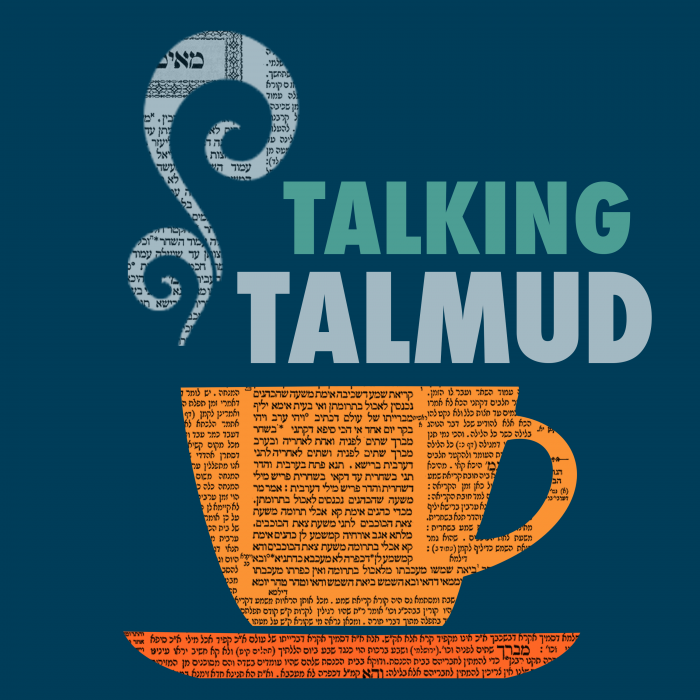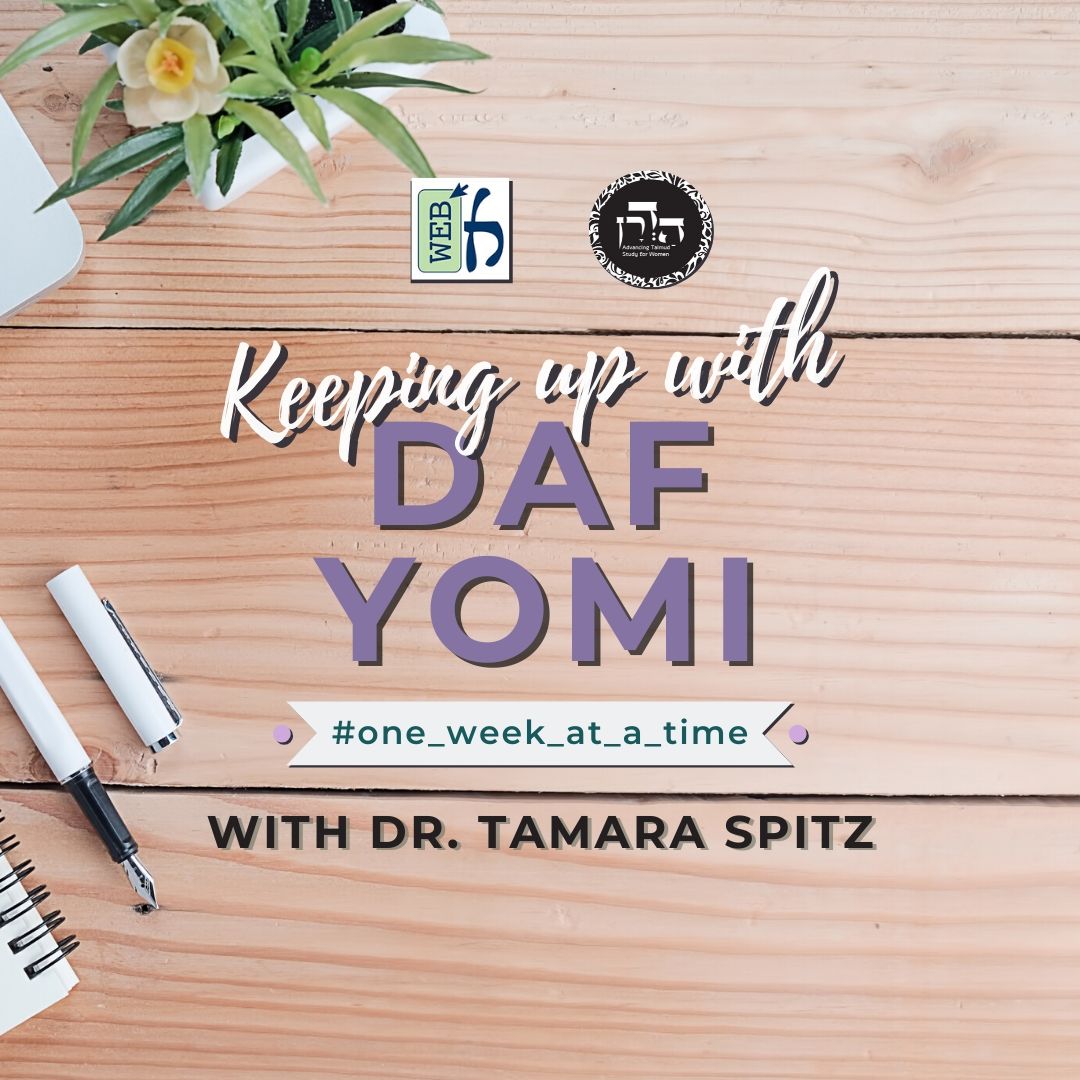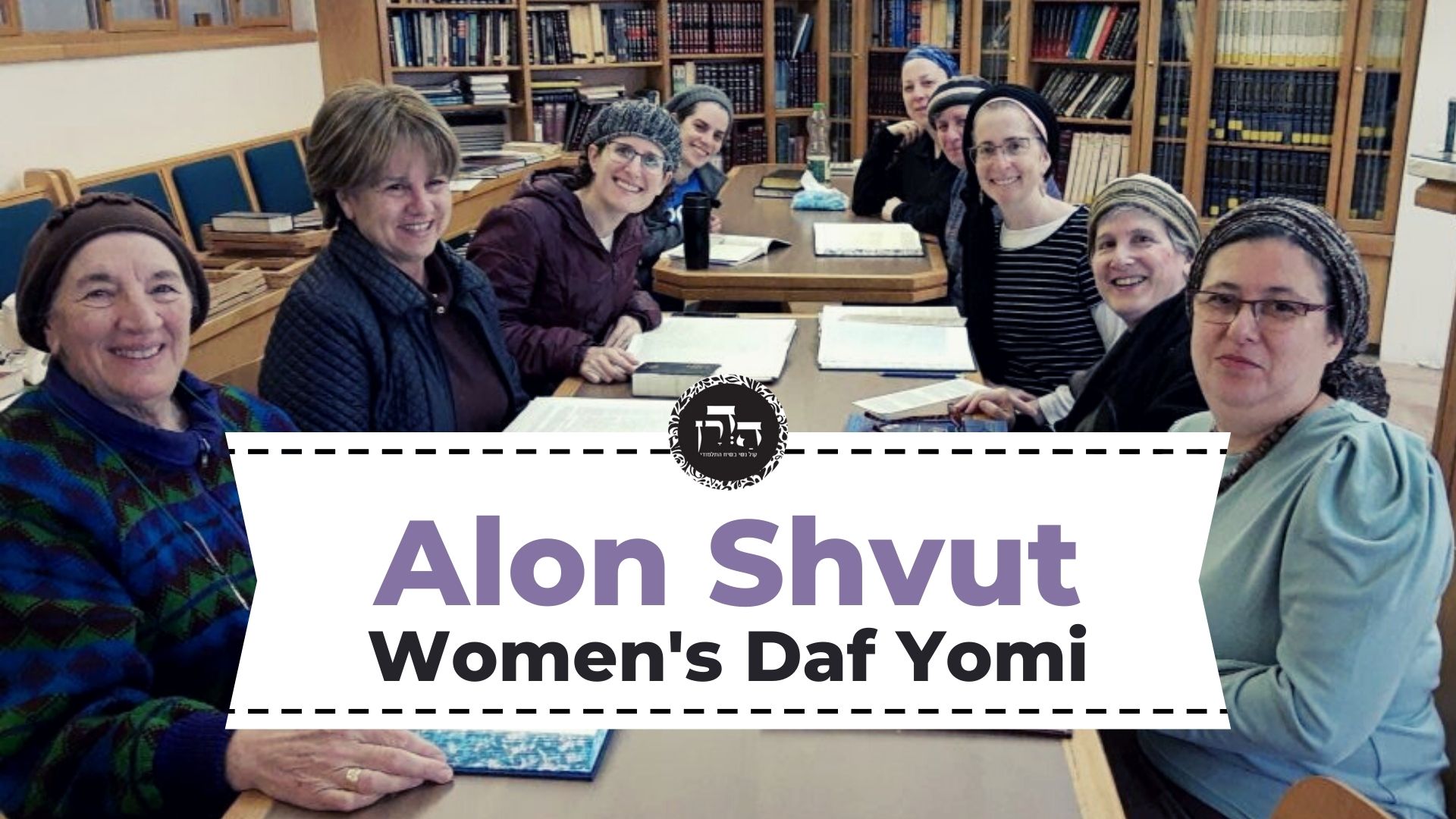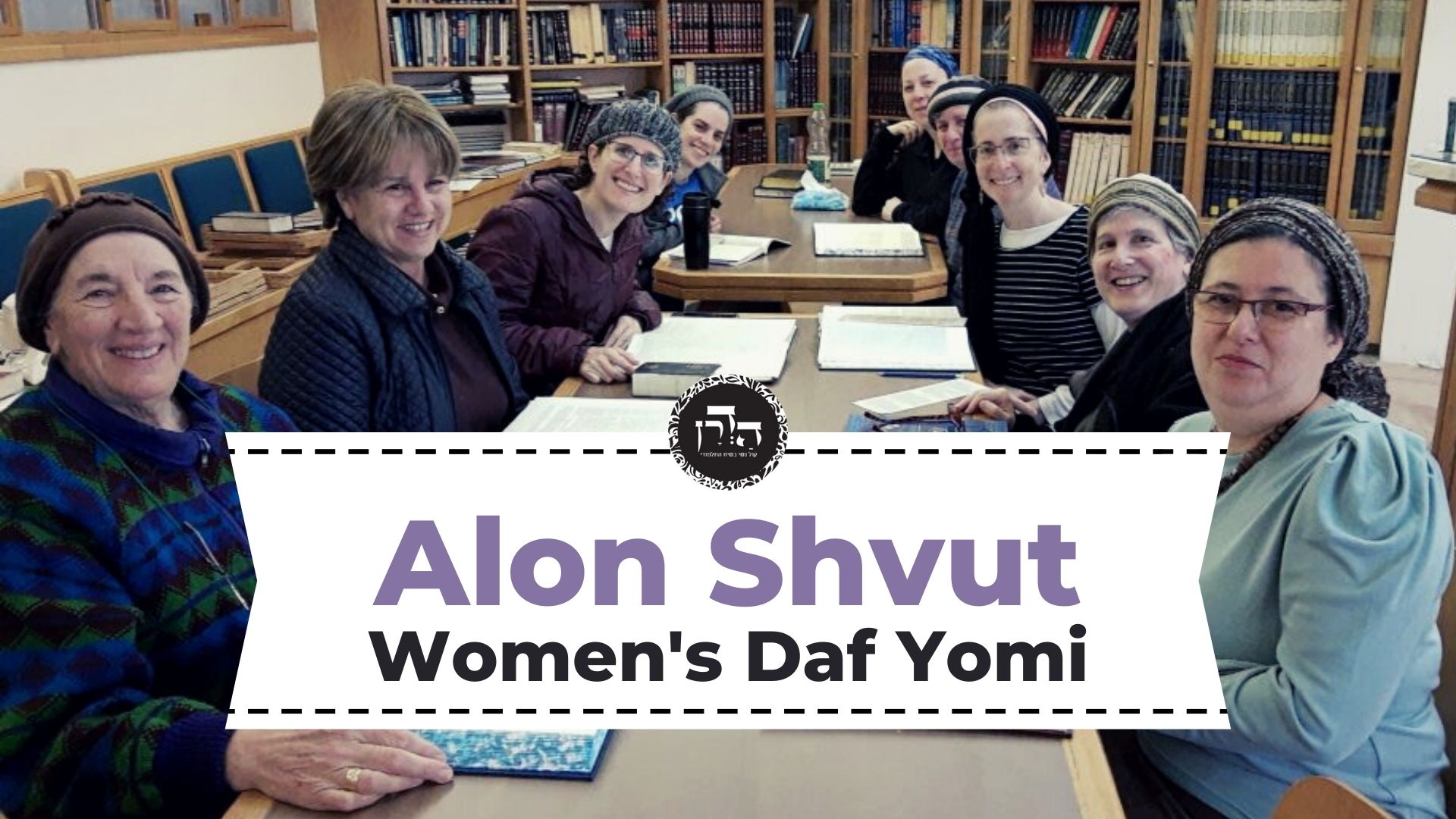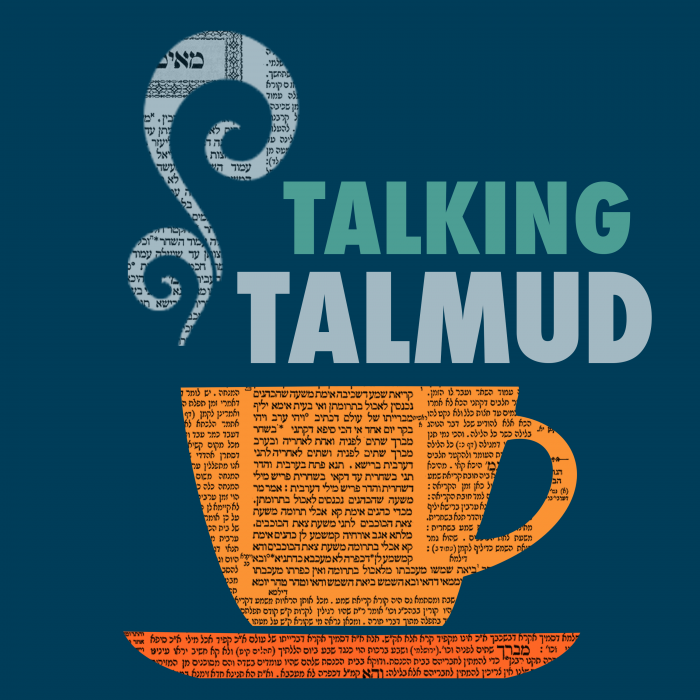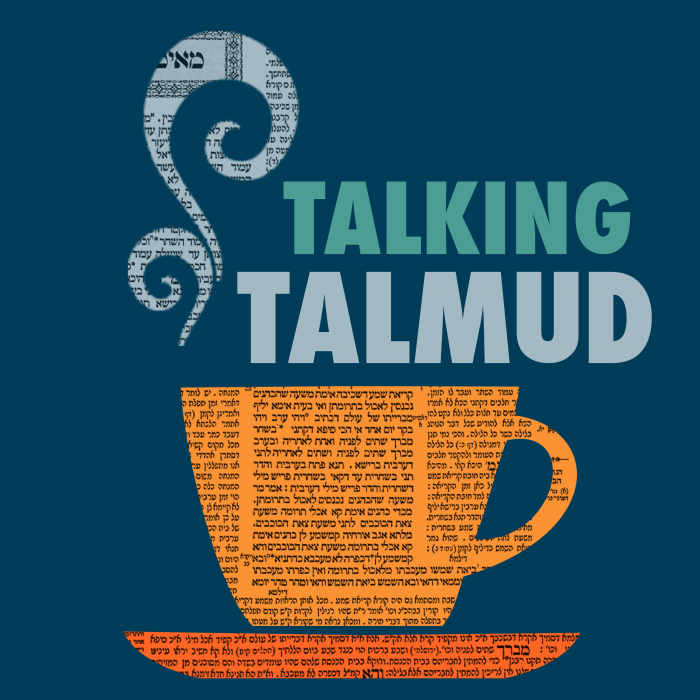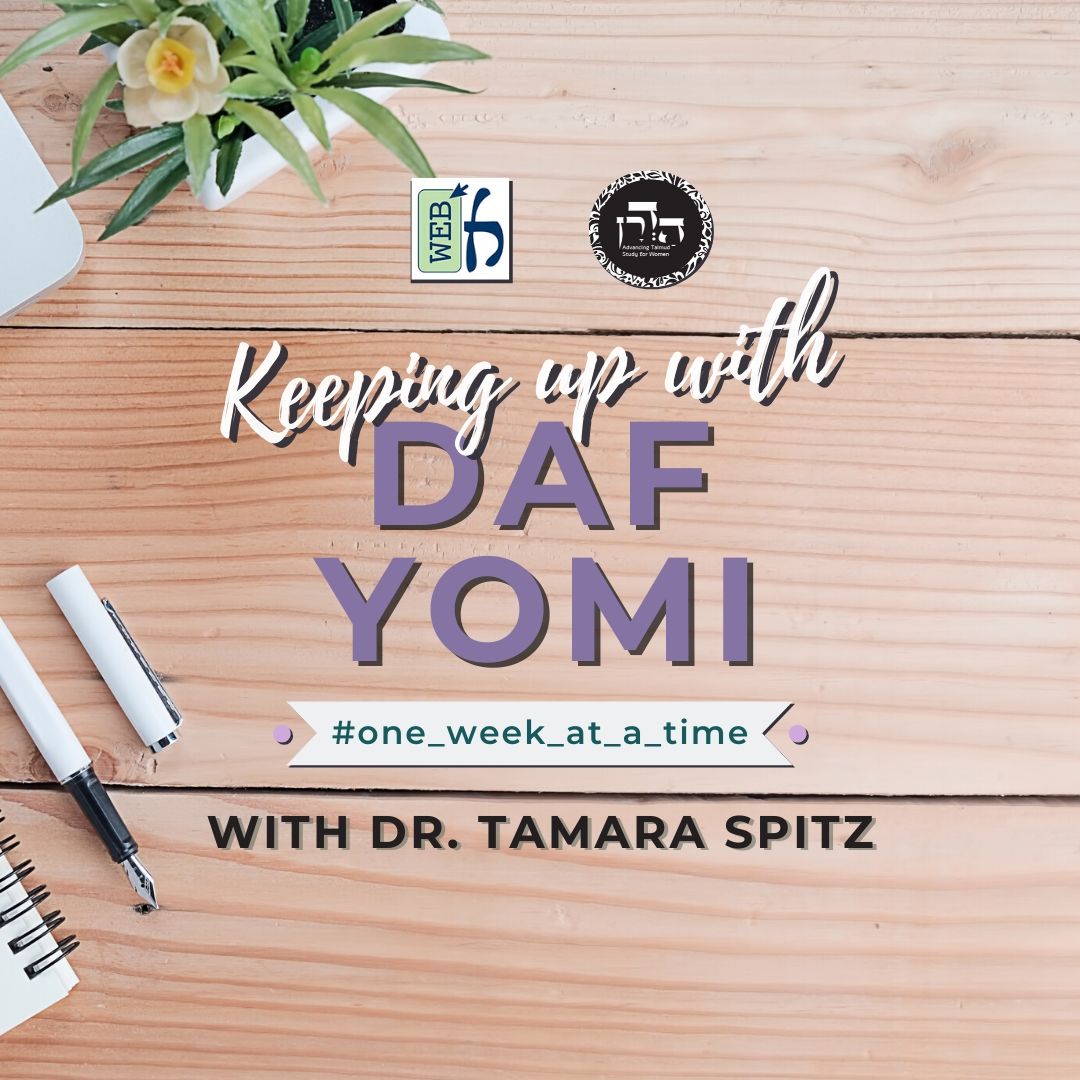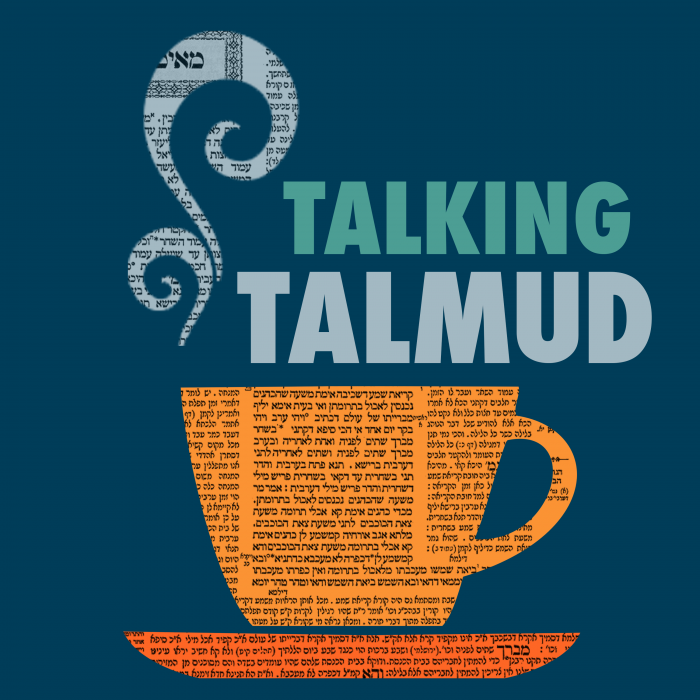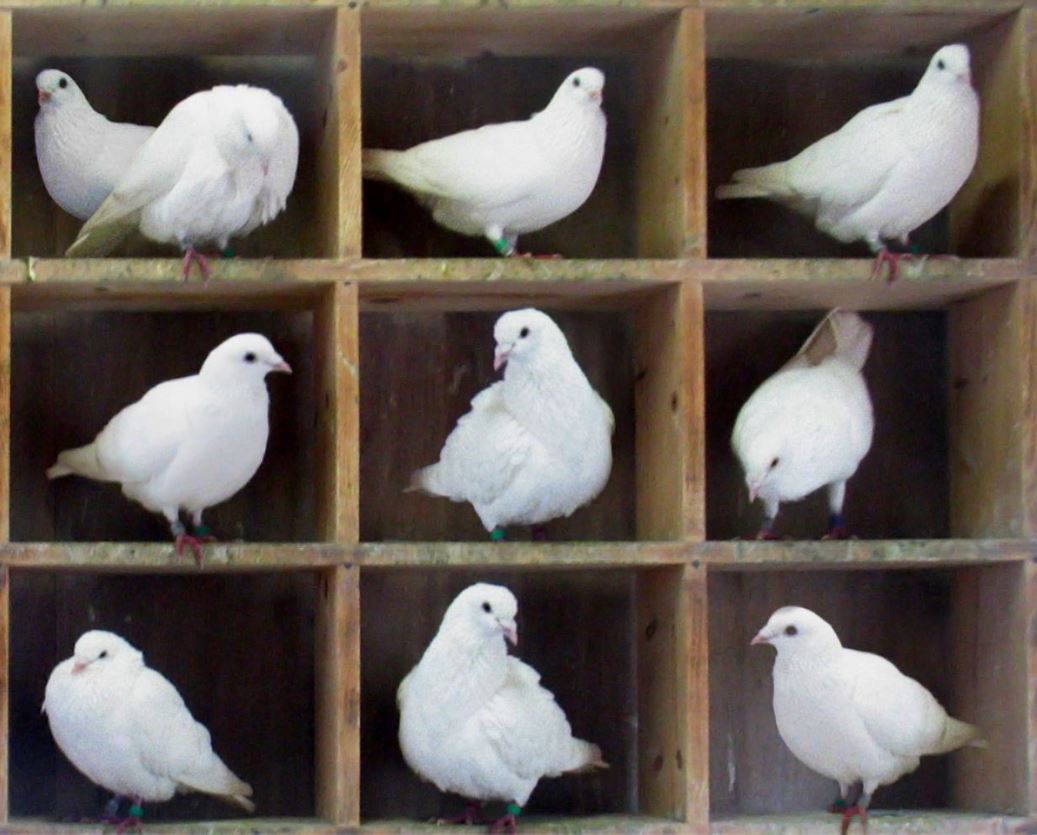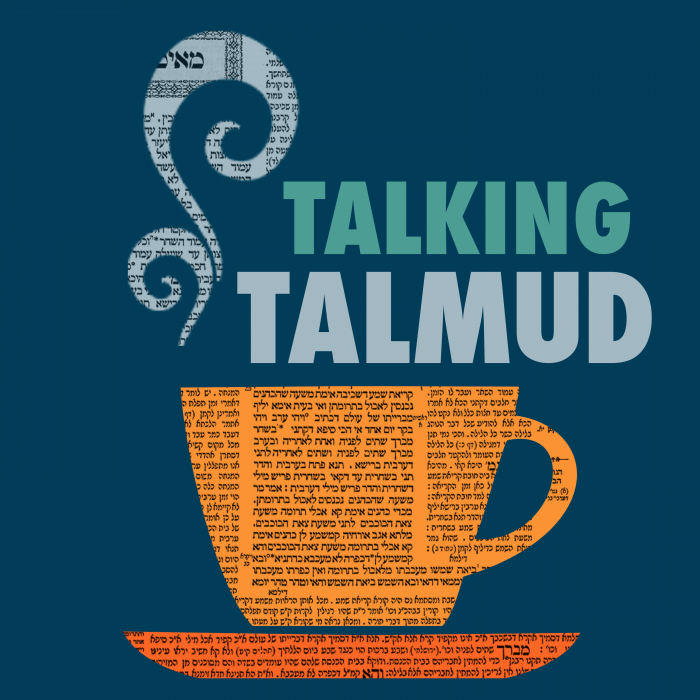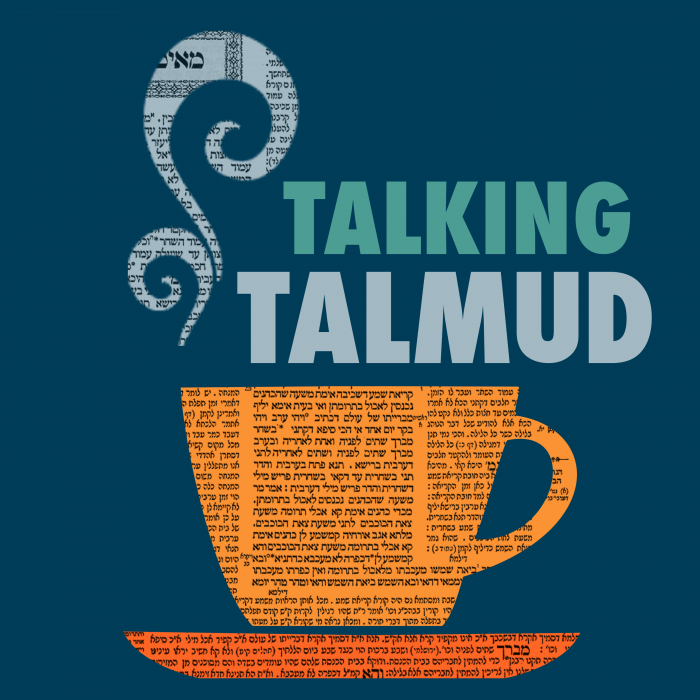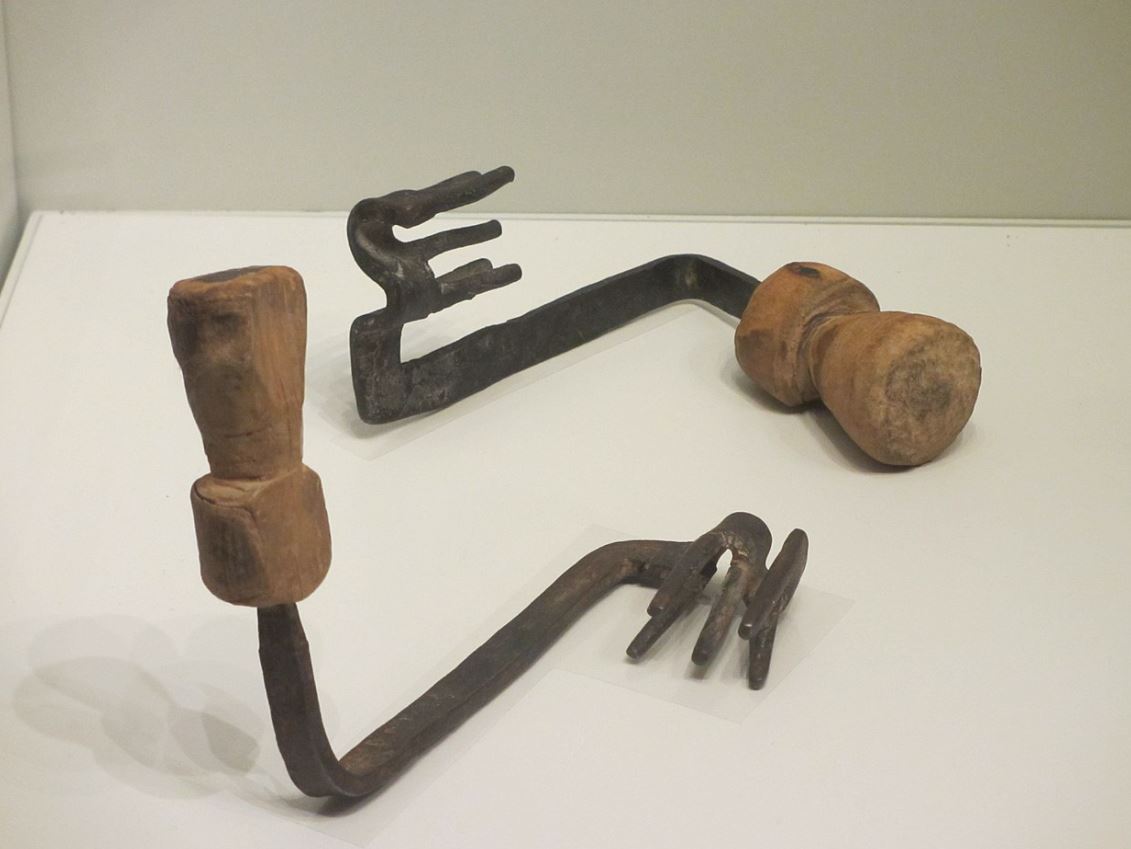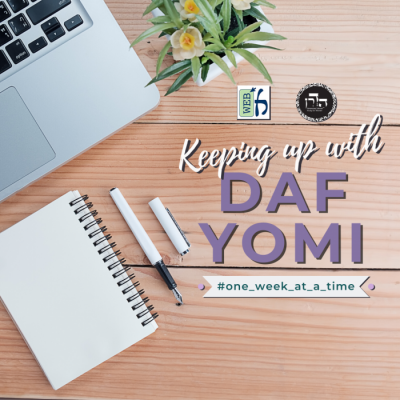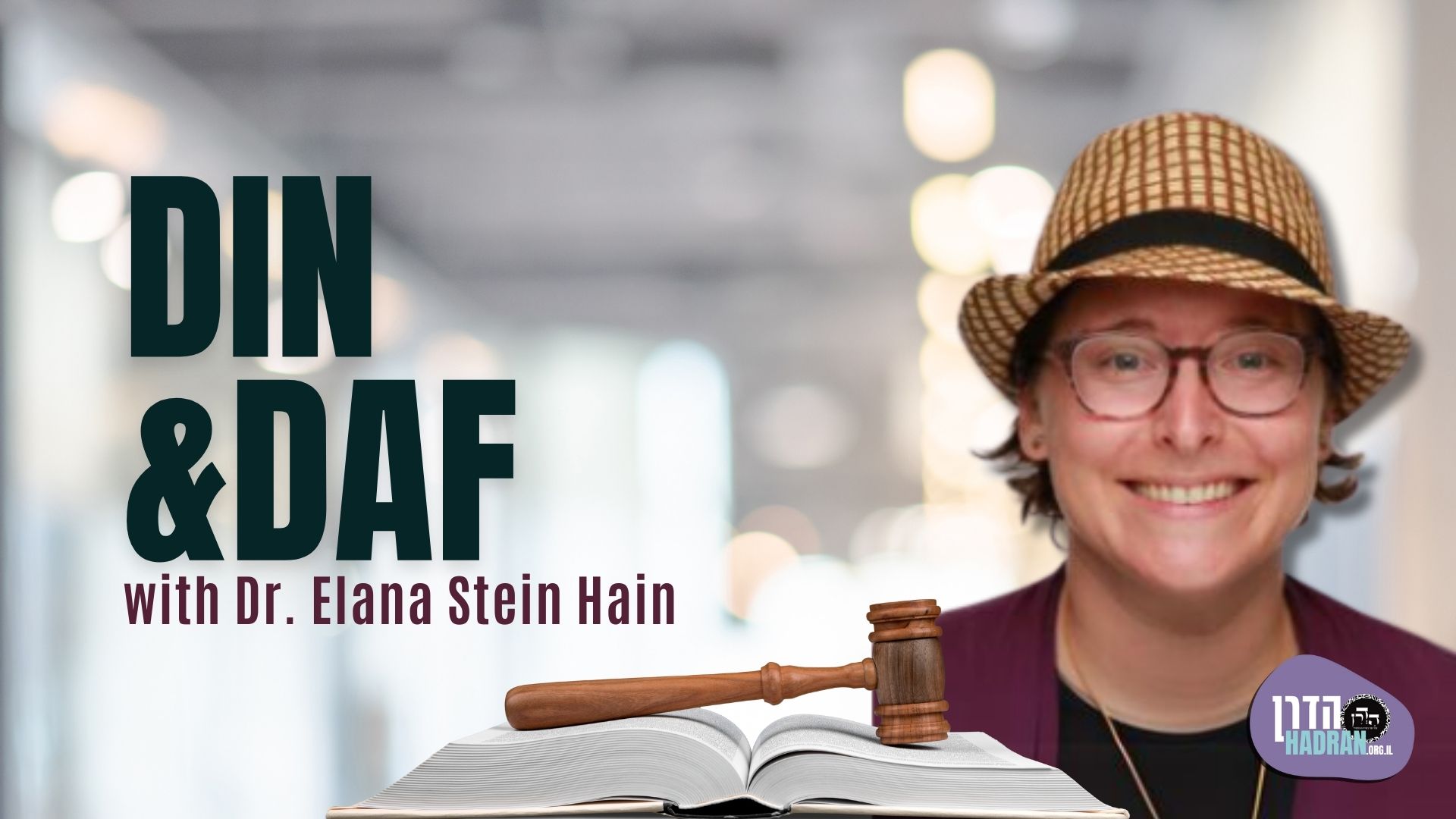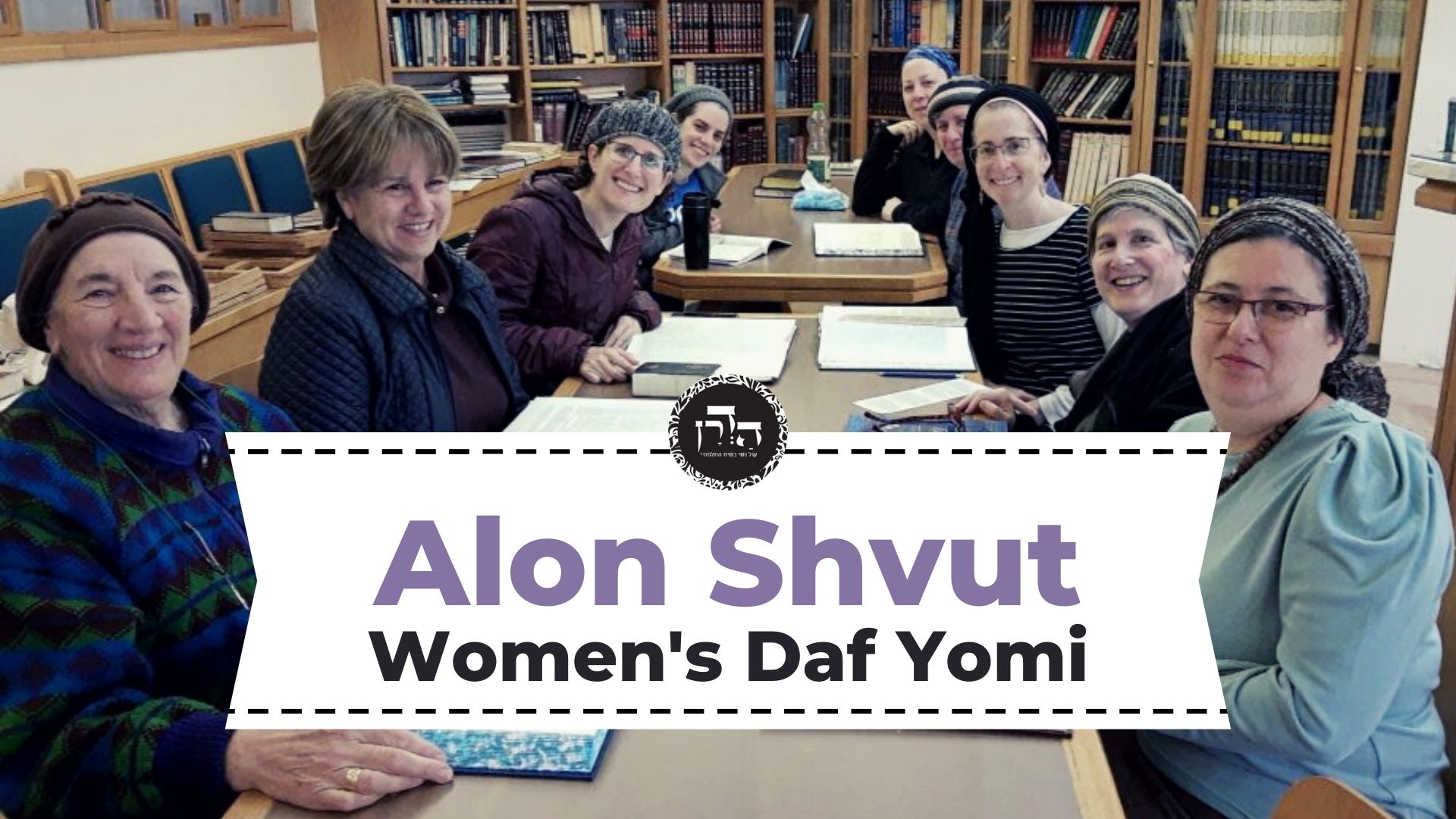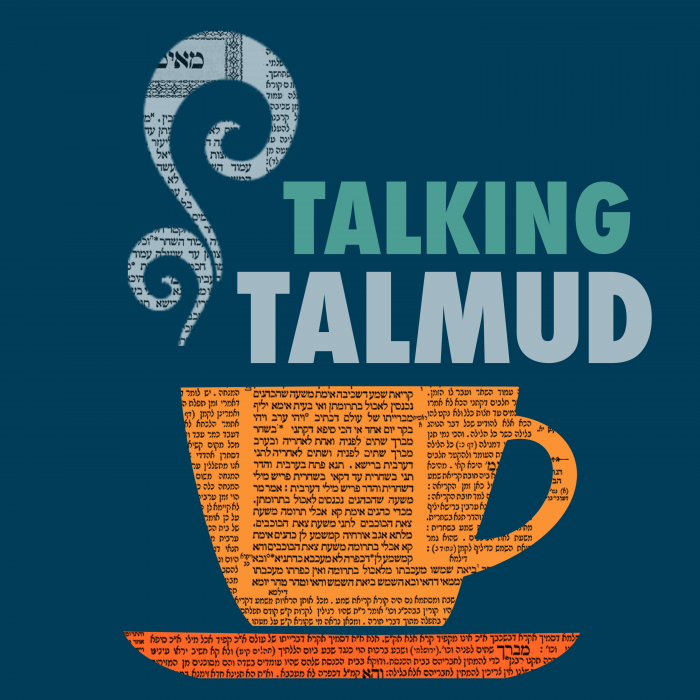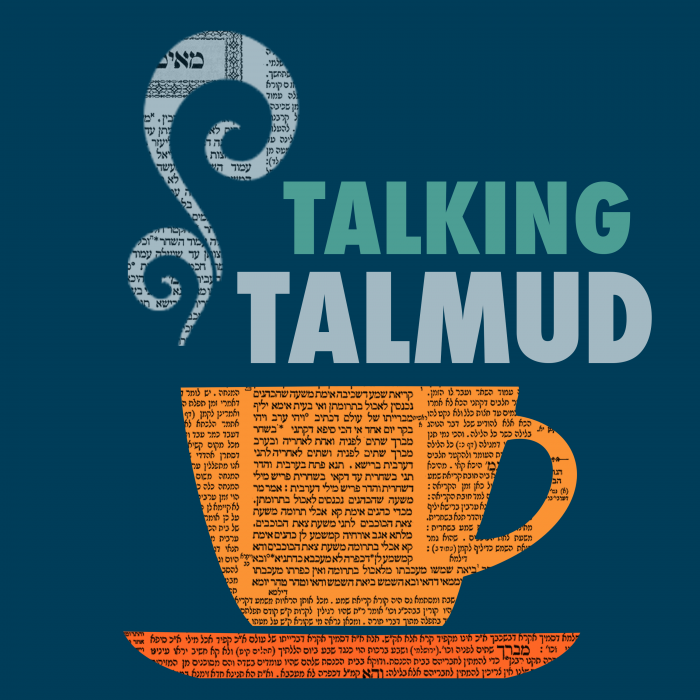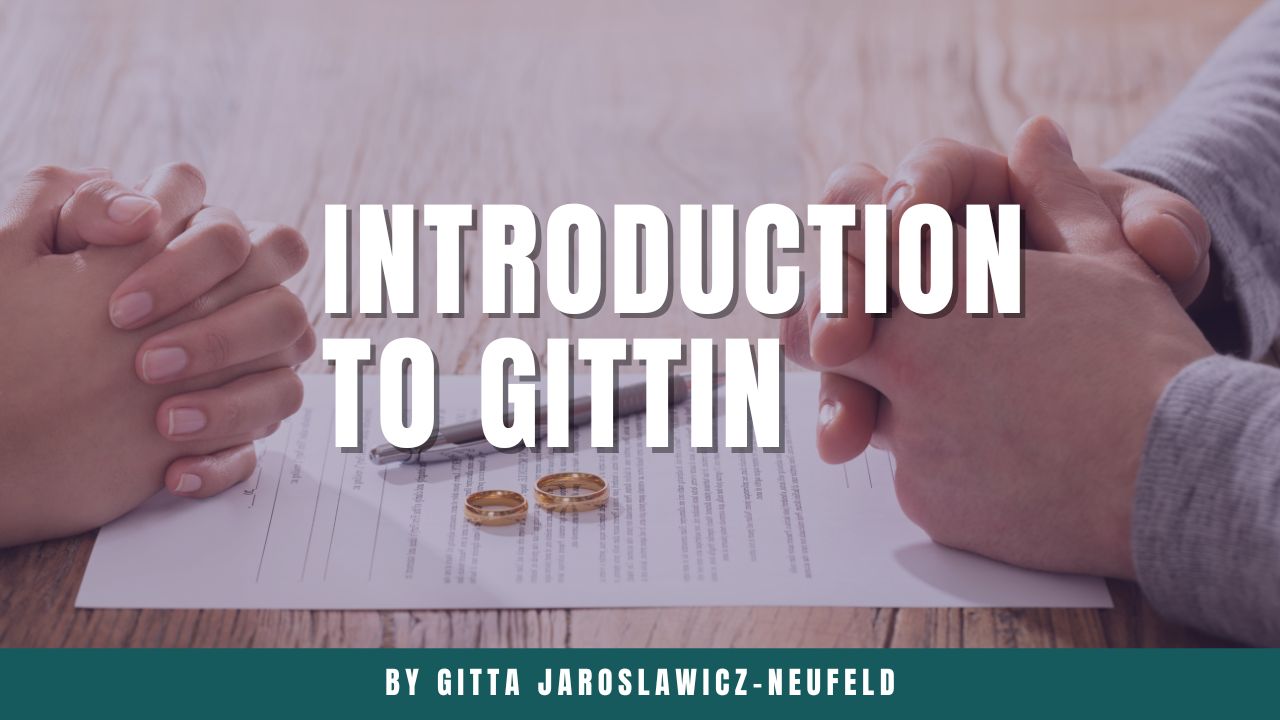Various emoraim limit Rabbi Akiva’s statements in the mishna: sprinkling the is only effective in a case disqualified due to it having the meat been removed from the courtyard if only part of the meat was removed, also if meat was removed and not blood. Also in the case brought regarding two animals designated for one sin offering must be in a case where both animals were slaughtered at the same time. varios questions are raised regarding some of these limitations. The mishna summarizes the laws regarding the effects of sprinkling of blood on higher and lower level sanctity sacrificial meat. However the gemara limits also the case the mishna is referring to.
This week’s learning is sponsored for the merit and safety of Haymanut (Emuna) Kasau, who was 9 years old when she disappeared from her home in Tzfat two years ago, on the 16th of Adar, 5784 (February 25, 2024), and whose whereabouts remain unknown.
This week’s learning is dedicated of the safety of our nation, the soldiers and citizens of Israel, and for the liberation of the Iranian people. May we soon see the realization of “ליהודים היתה אורה ושמחה וששון ויקר”.
This week’s learning is sponsored for the merit and safety of Haymanut (Emuna) Kasau, who was 9 years old when she disappeared from her home in Tzfat two years ago, on the 16th of Adar, 5784 (February 25, 2024), and whose whereabouts remain unknown.
Want to dedicate learning? Get started here:


Today’s daily daf tools:
This week’s learning is sponsored for the merit and safety of Haymanut (Emuna) Kasau, who was 9 years old when she disappeared from her home in Tzfat two years ago, on the 16th of Adar, 5784 (February 25, 2024), and whose whereabouts remain unknown.
This week’s learning is dedicated of the safety of our nation, the soldiers and citizens of Israel, and for the liberation of the Iranian people. May we soon see the realization of “ליהודים היתה אורה ושמחה וששון ויקר”.
This week’s learning is sponsored for the merit and safety of Haymanut (Emuna) Kasau, who was 9 years old when she disappeared from her home in Tzfat two years ago, on the 16th of Adar, 5784 (February 25, 2024), and whose whereabouts remain unknown.
Today’s daily daf tools:
Delve Deeper
Broaden your understanding of the topics on this daf with classes and podcasts from top women Talmud scholars.
New to Talmud?
Check out our resources designed to help you navigate a page of Talmud – and study at the pace, level and style that fits you.
The Hadran Women’s Tapestry
Meet the diverse women learning Gemara at Hadran and hear their stories.
Meilah 7
מְחַשְּׁבִין עַל הָאָבוּד וְעַל הַשָּׂרוּף.
one renders an offering piggul by having an intention at the time of sprinkling to later sacrifice its sacrificial portions after the proper time, even with regard to sacrificial portions that were already lost and with regard to sacrificial portions that were already burned.
וְהָא אָבוּד וְשָׂרוּף לָא אִיתִינּוּן בָּעוֹלָם, וַאֲפִילּוּ הָכִי קָתָנֵי מְחַשְּׁבִין!
The Gemara analyzes this statement: But sacrificial portions that are lost or burned are not present in the world, i.e., they are not available, and even so it is taught that one renders an offering piggul by an intention to consume it after its appointed time. It can be derived from here that if the entire offering left the courtyard, which is comparable to a case where it was lost, the sprinkling is effective with regard to the halakhot of misuse according to Rabbi Akiva. This apparently contradicts the opinion of Rabbi Yoḥanan.
וּמִי אָמַר רַב אַסִּי הָכִי? הָא בְּעָא מִינֵּיהּ רַב אַסִּי מֵרַבִּי יוֹחָנָן: חִישֵּׁב לַנִּשְׁפָּכִין, לְמָחָר, מַהוּ?
The Gemara asks: But did Rav Asi actually say this? Does he maintain that even if all of the meat and the sacrificial portions left the courtyard, the sprinkling is effective according to Rabbi Akiva? Didn’t Rav Asi raise the following dilemma before Rabbi Yoḥanan: What is the halakha in a case where the priest intended during the sacrificial rites that the remnant of the blood, which is meant to be poured on the base of the altar immediately after the sprinkling, will be poured improperly tomorrow? Does the offering thereby become piggul, as this is similar to intending to sprinkle the blood after the proper time; or does such intent apply only to the blood that is actually sprinkled on the altar?
אֲמַר לֵיהּ רַבִּי זֵירָא: כְּבָר שָׁנִיתָ לָנוּ אָלָל! אַלְמָא הַאי אָלָל, כֵּיוָן דְּלֵית בֵּיהּ מְשָׁשָׁא – לֹא קִיבֵּל טוּמְאָה,
And Rabbi Zeira said to Rav Asi in response to this dilemma: You already taught us in tractate Ḥullin, with regard to the ritual impurity of food and animal carcasses, that items that are not themselves edible but are attached to meat combine with the meat to constitute the requisite measure of an egg-bulk to transmit the impurity of foods. One instance of this principle is the meat residue attached to the hide after flaying, which combines with the meat to transmit the impurity of foods, despite the fact that it is not considered food and does not transmit impurity of foods on its own. Evidently this meat residue, since it has no substance and significance in and of itself, it is not susceptible to impurity.
הָנֵי נִשְׁפָּכִין נָמֵי, כֵּיוָן דִּלְאִיבּוּד אָזְלִי – בְּהוּ מַחְשָׁבָה לָא מַהְנְיָא!
The Gemara explains the contradiction: It follows that according to Rav Asi, in the case of this blood, which is meant to be poured on the base of the altar, since it is going to be lost and therefore is also insignificant, intent with regard to it is not effective to render the offering piggul. The blood that is to be poured on the base of the altar is similar to an offering that left the courtyard in its entirety, as they are both considered as though they are not present. Consequently, according to Rav Asi, in a case where the entire offering left the courtyard and is meant to be burned and thereby destroyed, it cannot be rendered piggul by means of intent during the sprinkling. This follows Rabbi Yoḥanan’s interpretation of the opinion of Rabbi Akiva, that he is referring only to a case where the offering left partially, not where the entire offering left.
אֶלָּא דְּקָתָנֵי עַל הָאָבוּד וְעַל הַשָּׂרוּף – קַשְׁיָא! אָמַר רָבָא: אֵימָא: עַל הָעוֹמֵד לְאִיבּוּד וְעַל הָעוֹמֵד לִישָּׂרֵף.
The Gemara objects: But Rav Asi cited that which the baraita teaches: One can render an offering piggul by means of one’s intent, even with regard to sacrificial portions that were already lost and with regard to sacrificial portions that were already burned. This baraita itself poses a difficulty, as it indicates that intent is effective even for that which has been destroyed. Rava said in response: Emend the wording of the baraita and say instead: One can render an offering piggul by means of one’s intent, even with regard to sacrificial portions that stand to be lost or with regard to sacrificial portions that stand to be burned, but were not yet destroyed. Since they are currently present, such intent is effective to render the offering piggul. But in a case where the offering left the courtyard, as it is not present, intent is ineffective with regard to it.
אָמַר רַב פָּפָּא: לָא אָמַר רַבִּי עֲקִיבָא זְרִיקָה מוֹעֶלֶת לַיּוֹצֵא אֶלָּא שֶׁיָּצָא בָּשָׂר, אֲבָל דָּם – אֵין זְרִיקָה מוֹעֶלֶת לַיּוֹצֵא.
§ With regard to Rabbi Akiva’s opinion in the mishna, Rav Pappa says that Rabbi Akiva says his ruling, that sprinkling is effective for the meat of offerings that left the courtyard before sprinkling, with regard to piggul and the halakhot of misuse, only in a case where the meat left while the blood remained inside and was sprinkled. But if the blood itself left, then even if it was returned to the courtyard and was sprinkled, in such a case the sprinkling of blood that left the courtyard is not effective to remove the meat from the halakhot of misuse.
תַּנְיָא נָמֵי הָכִי: שָׁחַט בִּשְׁתִיקָה וְיָצָא דָּם, אַף עַל פִּי שֶׁחָזַר וּזְרָקוֹ – לֹא עָשָׂה וְלֹא כְלוּם. בְּקׇדְשֵׁי קָדָשִׁים – מוֹעֲלִין בּוֹ, בְּקָדָשִׁים קַלִּים – אֵין מוֹעֲלִין בּוֹ.
The Gemara notes that this opinion of Rav Pappa is also taught in a baraita: If one slaughtered the animal in silence, i.e., with no improper intent, and the blood subsequently left the courtyard, even though it was returned to the courtyard and the priest later sprinkled it, he has done nothing, i.e., it is ineffective. Therefore, in the case of offerings of the most sacred order, one who derives benefit from it is still liable for misuse of consecrated property, as the sprinkling did not render the meat permitted. Likewise, in the case of offerings of lesser sanctity, the sprinkling does not render the sacrificial portions subject to the halakhot of misuse, and therefore one who derives benefit from it is not liable for misuse, as is the case before the sprinkling.
אָמַר רַבִּי עֲקִיבָא: הָא זֶה, לְמָה דּוֹמֶה?
The Gemara continues to analyze the opinion of Rabbi Akiva. Rabbi Akiva said, in support of his opinion: To what is this case, where the meat left before the blood was sprinkled, comparable? To the case of one who designated an animal as his sin offering and it was lost, and he designated another animal in its stead, and thereafter the first sin offering was found and both of them stand fit for sacrifice. From the fact that the second, unfit offering is exempted by means of the sprinkling of the blood of the first, fit offering, it may be inferred that the meat of an offering is exempted from the halakhot of misuse by the sprinkling of its own blood, despite the fact that the meat left the courtyard.
אָמַר רַבִּי אֶלְעָזָר: כִּי אָמַר רַבִּי עֲקִיבָא, בְּבַת אַחַת, אֲבָל בְּזֶה אַחַר זֶה – לֹא אָמַר רַבִּי עֲקִיבָא.
Rabbi Elazar says: When Rabbi Akiva says his opinion, that the sprinkling of the blood of one of the offerings exempts the other from the halakhot of misuse, that applies specifically in a situation where the two offerings were slaughtered at the same time, i.e., by two priests simultaneously, as in such a case they are considered like a single body. But in a case where the two offerings were slaughtered one after the other, Rabbi Akiva did not say that the sprinkling of one exempts the other from the halakhot of misuse. This is because when the first offering was slaughtered, the other became unfit as a leftover sin offering. Since there was no point at which its meat was permitted to be consumed by the priests, it was not exempted from the halakhot of misuse.
תַּנְיָא, אָמַר רַבִּי שִׁמְעוֹן: כְּשֶׁהָלַכְתִּי לִכְפַר פָּאנִי, מְצָאַנִי זָקֵן אֶחָד וְאָמַר לִי: אוֹמֵר הָיָה רַבִּי עֲקִיבָא זְרִיקָה מוֹעֶלֶת לַיּוֹצֵא? אָמַרְתִּי לוֹ: הֵן. וּכְשֶׁבָּאתִי וְהִרְצֵיתִי דְּבָרִים לִפְנֵי חֲבֵירַי שֶׁבַּגָּלִיל, אָמְרוּ לִי: הֲלֹא פָּסוּל הוּא, הֵיאַךְ מְרַצֶּה עַל הַפָּסוּל?
The Gemara cites a relevant baraita: It is taught in a baraita that Rabbi Shimon said: When I went to the village of Pani, a certain old man found me and said to me: Is it so that Rabbi Akiva would say that sprinkling is effective for the meat of offerings that left the courtyard and were thereby rendered unfit, with regard to the halakhot of misuse? I said to him: Yes. And when I came and presented this matter that the old man said before my colleagues in Galilee, they said, agreeing with his skepticism: How could Rabbi Akiva have said that? Since the meat that left the courtyard is unfit, how can the sprinkling effect acceptance for that which is unfit?
וּכְשֶׁיָּצָאתִי וְהִרְצֵיתִי דְּבָרִים לִפְנֵי רַבִּי עֲקִיבָא, אָמַר לִי: בְּנִי, אִי אַתָּה אוֹמֵר כֵּן? וַהֲרֵי הַמַּפְרִישׁ חַטָּאתוֹ וְאָבְדָה, וְהִפְרִישׁ אַחֶרֶת תַּחְתֶּיהָ, וְאַחַר כָּךְ נִמְצֵאת הָרִאשׁוֹנָה, וַהֲרֵי שְׁתֵּיהֶן עוֹמְדוֹת – מוֹעֲלִין בִּשְׁתֵּיהֶן. שְׁחָטָן, וַהֲרֵי דָּמָן מוּנָּח בְּכוֹסוֹת – מוֹעֲלִין בִּשְׁתֵּיהֶן.
But when I left their presence and presented this matter before Rabbi Akiva, he said: And you, my son, do you not say so, that sprinkling is effective even with regard to that which is unfit? But in the case of one who designated an animal as his sin offering and it was lost and he designated another animal in its stead, and thereafter the first sin offering was found and both of them stand fit for sacrifice, he may sacrifice either animal, thereby rendering the other unfit, and yet both are subject to the halakhot of misuse. This is due to the fact that these offerings remain consecrated to God, and therefore one who derives benefit from them is liable for misuse. Likewise, if one slaughtered them both, and their blood is placed in cups and the blood of one of them will be sprinkled on the altar, both of them are subject to the halakhot of misuse.
נִזְרַק דָּם שֶׁל אֶחָד מֵהֶם, אִי אַתָּה מוֹדֶה שֶׁכְּשֵׁם שֶׁדָּמָהּ פּוֹטֵר אֶת בְּשָׂרָהּ מִן הַמְּעִילָה, אַף יִפְטוֹר בְּשַׂר חֲבֶירְתָּהּ מִן הַמְּעִילָה?
And in a case where the blood of one of the sin offerings was sprinkled, do you not concede that just as the sprinkling of its blood exempts its meat from the halakhot of misuse, so too, it exempts the meat of the other animal from the halakhot of misuse?
אִם הִצִּיל בְּשַׂר חֲבֶירְתָּהּ מִן הַמְּעִילָה, אַף עַל פִּי שֶׁהוּא פָּסוּל, דִּין הוּא שֶׁיַּצִּיל אֶת בְּשָׂרָהּ!
If so, one may infer from here by an a fortiori inference with regard to the case of sprinkling the blood of meat that left the courtyard: If the sprinkling of its blood spared the meat of the other animal from the halakhot of misuse, even though that animal is unfit, as it is a leftover sin offering, it is only right that the blood that was sprinkled should exempt its own meat, despite the fact that it left the courtyard.
אָמַר רֵישׁ לָקִישׁ מִשּׁוּם רַב אוֹשַׁעְיָא: תְּשׁוּבָה גְּנוּבָה הֱשִׁיבוֹ רַבִּי עֲקִיבָא לְאוֹתוֹ תַּלְמִיד, בְּבַת אַחַת – אִין, בְּזֶה אַחַר זֶה – לָא,
With regard to this reply by Rabbi Akiva, Reish Lakish says in the name of Rav Oshaya: Rabbi Akiva gave a deceptive response to that student of his, Rabbi Shimon. Reish Lakish elaborates: Based on Rabbi Akiva’s reply, one would think that if the two sin offerings were slaughtered at the same time, then yes, the blood of one sin offering exempts the meat of the other from the halakhot of misuse. But if they were slaughtered one after the other, it does not exempt the meat of the other offering.
דְּכֵיוָן דְּפָסוּל הוּא, מָה לִי בְּבַת אַחַת, מָה לִי בְּזֶה אַחַר זֶה?!
But since in either case the other offering, whose blood was not sprinkled, is unfit, as it is a leftover sin offering, what difference does it make to me whether they were slaughtered at the same time or whether they were slaughtered one after the other? In either case, according to Rabbi Akiva, the sprinkling of one should exempt the meat of the other from the halakhot of misuse.
אֲמַר לֵיהּ רַבִּי יוֹחָנָן לְרֵישׁ לָקִישׁ: וְאַתָּה, אִי אַתָּה אוֹמֵר כֵּן?
Rabbi Yoḥanan said to Reish Lakish in response: And you, who raise this difficulty, do you not also say the same, that there is a difference between a case where they were slaughtered at the same time, and are therefore considered one entity, when the sprinkling of the blood of one offering exempts the meat of the other, and a case where they were slaughtered one after the other, and are therefore considered two separate entities, which means that the blood of one offering does not exempt the meat of the other?
אִילּוּ הִפְרִישׁ שְׁתֵּי אֲשָׁמוֹת לְאַחְרָיוּת, וְשָׁחַט אֶת שְׁנֵיהֶן, וְקָדַם וְהֶעֱלָה אֵימוּרִין שֶׁל אֶחָד מֵהֶן קוֹדֶם זְרִיקָה, אִי אַתָּה מוֹדֶה שֶׁאִם עָלוּ – יֵרְדוּ?
But in a case where one separated two guilt offerings as a guarantee for his obligation of a single guilt offering, i.e., that if one were lost he could achieve atonement by means of the second, and one slaughtered both of them, and the priest first brought up the sacrificial portions of one of them onto the altar before sprinkling any blood, and then sprinkled the blood of the other offering, would you not concede that even if the sacrificial portions of this offering whose blood was not sprinkled ascended the altar, that they shall descend without being sacrificed? The proper procedure is that first the blood is sprinkled and only then are the sacrificial portions brought up onto the altar to be sacrificed.
וְאִי סָלְקָא דַעְתָּךְ חַד גּוּפָא הוּא, אַמַּאי אִם עָלוּ – יֵרְדוּ? הָאָמַר עוּלָּא: אֵימוּרֵי קָדָשִׁים קַלִּים שֶׁהֶעֱלָן לִפְנֵי זְרִיקַת דָּם – לֹא יֵרְדוּ, נַעֲשָׂה לַחְמוֹ שֶׁל מִזְבֵּחַ!
Rabbi Yoḥanan analyzes this case: And if it enters your mind to say that even when the two offerings were slaughtered one after the other they are still considered as one entity, why is it the halakha that if the sacrificial portions ascended the altar, they shall descend? Doesn’t Ulla say that sacrificial portions of offerings of lesser sanctity which one brought up to the altar before the sprinkling of the offering’s blood, and are therefore not yet fit for the altar, shall not descend, but are sacrificed, as the sacrificial portions have become the food of the altar, by virtue of their placement upon it?
אִישְׁתִּיק. אָמַר רַבִּי יוֹחָנָן: קַצֵּצְתִּינּוּן לְרַגְלוֹהִי דְיָנוֹקָא.
Reish Lakish was silent, as he had no answer to Rabbi Yoḥanan’s difficulty. Rabbi Yoḥanan said in this regard: We have cut off the legs of the child, i.e., I have refuted Reish Lakish’s opinion by raising a difficulty that eliminates the basis for his opinion.
מַתְנִי׳ יֵשׁ מַעֲשֵׂה דָמִים בְּקׇדְשֵׁי קָדָשִׁים לְהָקֵל וּלְהַחֲמִיר, וּבְקָדָשִׁים קַלִּים כּוּלְּהוּ לְהַחֲמִיר.
MISHNA: With regard to establishing liability for misuse of consecrated items, there is an aspect of leniency and an aspect of stringency in the act of sprinkling the blood of offerings of the most sacred order. But with regard to the sprinkling of the blood in the case of offerings of lesser sanctity, it contains in its entirety aspects of stringency, i.e., there are only aspects of stringency.
כֵּיצַד? קׇדְשֵׁי קָדָשִׁים לִפְנֵי זְרִיקַת דָּמִים – מוֹעֲלִין בְּאֵימוּרֵיהֶן וּבַבָּשָׂר. לְאַחַר זְרִיקַת דָּמִים – מוֹעֲלִין בְּאֵימוּרֵיהֶן, וְאֵין מוֹעֲלִין בַּבָּשָׂר.
How so? The status of offerings of the most sacred order is that before the sprinkling of blood, one is liable for misusing their sacrificial portions that are to be burned on the altar, and for misusing the meat that is to be eaten by the priests. Since the meat is prohibited prior to sprinkling the blood, it is in the category of items consecrated to God, which are subject to the halakhot of misuse. After the sprinkling of the blood of offerings of the most sacred order, one is still liable for misuse of their sacrificial portions, as they remain prohibited to be eaten and are in the category of items consecrated to God, but one is not liable for misuse of the meat, as it is now permitted for consumption by the priests. This explains how there is an aspect of leniency in the sprinkling of the blood of offerings of the most sacred order.
וְעַל זֶה וְעַל זֶה – חַיָּיב מִשּׁוּם פִּיגּוּל, נוֹתָר, וְטָמֵא. נִמְצָא, מַעֲשֵׂה דָמִים בְּקׇדְשֵׁי קָדָשִׁים לְהָקֵל וּלְהַחֲמִיר,
By contrast, for consumption of both this, the sacrificial portions, and that, the meat, after the sprinkling of the blood, one is liable to receive karet due to violation of the prohibition against consumption of piggul, and the prohibition against consumption of notar, and the prohibition against consumption of sacrificial meat while ritually impure. Consequently, the act of sprinkling blood of offerings of the most sacred order is found to contain an aspect of leniency and an aspect of stringency.
וּבְקָדָשִׁים קַלִּים כּוּלָּן לְהַחֲמִיר. כֵּיצַד? קָדָשִׁים קַלִּים לִפְנֵי זְרִיקַת דָמִים – אֵין מוֹעֲלִין לֹא בָּאֵימוּרִין וְלֹא בַּבָּשָׂר, לְאַחַר זְרִיקַת דָמִים – מוֹעֲלִין בָּאֵימוּרִין וְאֵין מוֹעֲלִין בַּבָּשָׂר.
But with regard to the sprinkling of the blood of offerings of lesser sanctity, all of their aspects are of stringency. How so? The status of offerings of lesser sanctity is that before the sprinkling of the blood, one is not liable for misuse, not for their sacrificial portions nor for the meat. After the sprinkling of the blood, one is liable for misuse of their sacrificial portions, but one is not liable for misuse of the meat. This explains how the sprinkling of the blood in the case of offerings of lesser sanctity causes a stringency in terms of the halakhot of misuse.
עַל זֶה וְעַל זֶה חַיָּיבִין עָלָיו מִשּׁוּם פִּיגּוּל, נוֹתָר, וְטָמֵא. נִמְצָא מַעֲשֵׂה דָמִים בְּקָדָשִׁים קַלִּים כּוּלָּן לְהַחֲמִיר.
And for consumption of both this, the sacrificial portions, and that, the meat, after the sprinkling of the blood, one is liable to receive karet due to violation of the prohibition against consumption of piggul, and of the prohibition against consumption of notar, and of the prohibition against consumption of sacrificial meat while ritually impure. Consequently, in the act of sprinkling the blood of offerings of lesser sanctity, it is found that all of their aspects are of stringency.
גְּמָ׳ קָתָנֵי ״אֵין מוֹעֲלִין בַּבָּשָׂר״ – מְעִילָה הוּא דְּלֵיכָּא, הָא אִיסּוּרָא אִיכָּא, וְאַמַּאי? הָא מָמוֹנָא דְכֹהֵן הוּא!
GEMARA: The mishna teaches: After the sprinkling of the blood of offerings of the most sacred order, one is not liable for misusing the meat. The Gemara infers from this that there is no liability for misuse of consecrated property, but there is a prohibition for the priest to eat from it even after the blood has been sprinkled. The Gemara therefore asks: But why is there such a prohibition? Isn’t the meat the property of the priests after the blood has been sprinkled, and therefore it is permitted for them in consumption?
לָא קַשְׁיָא, מִשּׁוּם דְּנָסֵיב רֵישָׁא ״מוֹעֲלִין״, נָסֵיב סֵיפָא ״אֵין מוֹעֲלִין״.
The Gemara answers: This is not difficult, as the above inference is invalid. The reason that the mishna taught that one is not liable, rather than saying that the meat is permitted, is as follows: Since the first clause mentions the phrase: One is liable for misusing, the latter clause also mentions the parallel phrase: One is not liable for misusing. Therefore, the above inference is incorrect, as there is in fact no prohibition for the priests to eat the meat.
אֵימָא סֵיפָא: ״בְּקָדָשִׁים קַלִּים כּוּלְּהוּ לְהַחֲמִיר. כֵּיצַד? בְּשַׂר קָדָשִׁים קַלִּים לִפְנֵי זְרִיקַת דָּמִים – אֵין מוֹעֲלִין בָּהֶן וּבְאֵימוּרֵיהֶן, וְאֵין חַיָּיבִין עֲלֵיהֶן מִשּׁוּם פִּיגּוּל, נוֹתָר, וְטָמֵא. לְאַחַר זְרִיקַת דָּמִים – מוֹעֲלִין בְּאֵימוּרֵיהֶן וְאֵין מוֹעֲלִין בַּבָּשָׂר״.
The Gemara continues to analyze the mishna. Say the latter clause: But with regard to the sprinkling of the blood of offerings of lesser sanctity, all of their aspects are of stringency. How so? The status of the meat of offerings of lesser sanctity is that before the sprinkling of the blood, one is not liable for misuse, not for their meat nor for their sacrificial portions. And one is not liable due to violation of the prohibition against piggul, notar, or the consumption of sacrificial meat while ritually impure. After the sprinkling of the blood, one is liable for misuse of their sacrificial portions, and one is not liable for misuse of the meat.
מְעִילָה הוּא דְּלֵיכָּא, הָא אִיסּוּרָא אִיכָּא, וְאַמַּאי? הָא מָמוֹנָא דִבְעָלִים הוּא!
The Gemara infers as above: There is no liability for misuse of the meat of offerings of lesser sanctity, but there is a prohibition for the owners to consume it, even after the blood has been sprinkled. But why is there such a prohibition? Isn’t this meat the property of the owners after the blood has been sprinkled, and it is permitted for them in consumption?
אָמַר רַבִּי חֲנִינָא: לַיּוֹצְאִין, וְרַבִּי עֲקִיבָא הִיא.
Rabbi Ḥanina says in explanation: This is referring to meat that was taken out from the place where it is permitted to be eaten before the sprinkling of the blood, and the blood was later sprinkled. In such a case, the meat is prohibited. And this ruling is in accordance with the opinion of Rabbi Akiva in the mishna on 6b, who rules that sprinkling is effective in that it exempts the meat of the offerings of the most sacred order from the halakhot of misuse, and renders the meat of offerings of lesser sanctity subject to misuse, even if the meat left the courtyard.
כִּי אָמַר רַבִּי עֲקִיבָא זְרִיקָה מוֹעֶלֶת, לַיּוֹצֵא לִשְׂרֵיפָה,
Rabbi Ḥanina continues: The tanna here is teaching that when Rabbi Akiva says that sprinkling is effective with regard to the meat of offerings of the most sacred order or the sacrificial portions of offerings of lesser sanctity that left the courtyard, with regard to the halakhot of misuse, piggul, notar, and the prohibition against consumption of sacrificial meat while ritually impure, that applies specifically with regard to the halakhot of its burning, that it is not burned right away, but that one must wait until the following morning to burn it.


